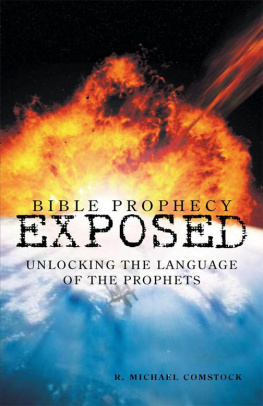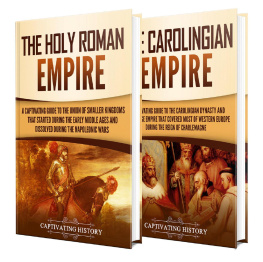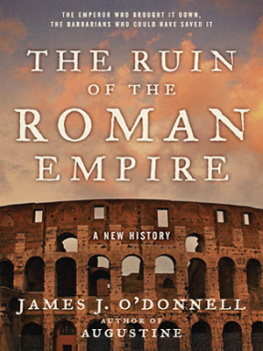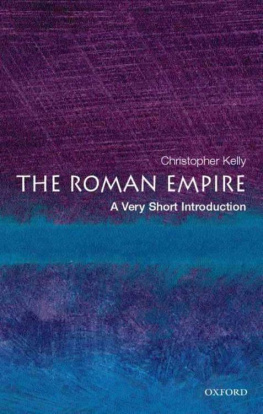Prophets, Prophecy, and Oracles in the Roman Empire
This book surveys the uses and function of prophecy, prophets, and oracles among Jews, Christians, and pagans in the first three centuries of the Roman Empire and explores how prophecy and prophetic texts functioned as a common language that enabled religious discourse to develop between these groups. It shows that each of these cultures believed that it was in prophetic texts and prophetic utterances that they could find the surest proof of their religious beliefs and a strong confirmation of their group identity.
Leslie Kelly is Associate Professor of History in the School of Arts & Humanities at American Public University, USA.
Routledge Focus on Classical Studies
This new series, part of the Routledge Focus short-form programme, provides a venue for the most up-to-date research in the field of Classical Studies. The series covers a range of topics, from focussed studies on specific texts, figures, or themes, to works on wider issues.
For more information on the Routledge Focus programme, please visit our author information page: www.routledge.com/resources/authors/how-to-publish-with-us
First published 2018
by Routledge
2 Park Square, Milton Park, Abingdon, Oxon OX14 4RN
and by Routledge
711 Third Avenue, New York, NY 10017
Routledge is an imprint of the Taylor & Francis Group, an informa business
2018 Leslie Kelly
The right of Leslie Kelly to be identified as author of this work has been asserted by her in accordance with sections 77 and 78 of the Copyright, Designs and Patents Act 1988.
All rights reserved. No part of this book may be reprinted or reproduced or utilised in any form or by any electronic, mechanical, or other means, now known or hereafter invented, including photocopying and recording, or in any information storage or retrieval system, without permission in writing from the publishers.
Trademark notice: Product or corporate names may be trademarks or registered trademarks, and are used only for identification and explanation without intent to infringe.
British Library Cataloguing-in-Publication Data
A catalogue record for this book is available from the British Library
Library of Congress Cataloging-in-Publication Data
A catalog record for this book has been requested
ISBN: 978-0-8153-7343-8 (hbk)
ISBN: 978-1-351-24353-7 (ebk)
Typeset in Times New Roman
by Apex CoVantage, LLC
[T]his people, if they had no means of attaining a knowledge of futurity, being led by the passion common to humanity of ascertaining the future, would have despised their own prophets, as not having in them any particle of divinity; and would not have accepted any prophet after Moses, nor committed their words to writing, but would have spontaneously betaken themselves to the divining usages of the heathen I think, then, that it has been pretty well established that there were prophets among the Jews who uttered not merely general predictions about the future, as, e.g., regarding Christ and the kingdoms of the world, and the events that were to happen to Israel, and those nations which were to believe on the Saviour, and many other things concerning Him, but also prophecies respecting particular events.
(Origen, Against Celsus 1.3637)1
This statement was made by Origen, an early Christian author, who was arguing against a pagan antagonist, Celsus, in support of Jewish, and ultimately Christian, prophecy (and in particular for his own interpretation of the true meaning of Jewish prophetical writings). According to this passage, it is human, and natural, to practice divination! Divination was omnipresent in the Roman Empire, and it encompassed a wide range of activities. It could include asking the god(s) about the future: ones own future, the future of ones city state, or the future of the Empire. But it could also be an attempt to discern the relationship between the deity (or deities) and humans. Was the relationship good, or did the god(s) require something? Did people need to revive an old rite, establish a new cult, abjure their sins? This book will examine the role that divination played in the first three centuries of the Roman Empire, concentrating on the role of prophets, prophecy, and oracles for the Jewish, Christian, and Greco-Roman cultures. These particular cultures were selected because they provide the fullest extant evidence base and because they have long been the subject of scholarly attention. This allows us to readily identify broad trends in the uses of prophecy and oracles for each group. These three cultures are also a natural choice for comparison because divination formed a part of the religious and political relationships between them., we will look at divination in pagan Greco-Roman culture, particularly at the flourishing of Neoplatonic interest in oracles and divination in the third century, and the role that oracles played in the Great Persecution in the early fourth century. As we will see, the three groups continually used prophets and prophecy as means of defining themselves and of engaging with each other, in both positive and negative ways.
This study is intentionally text-oriented. It is the literary texts from antiquity that provide us with the best evidence for attitudes toward prophets, prophecy, and oracles. Religious and philosophical works from Plato onward often took up these topics, and in the time of the Roman Empire interest in them was quite high. As will become obvious throughout this study, divination formed part of the repertoire of learned discourse in the Empire about the cosmos and humanitys place within it.
The textual evidence also allows us to draw limited conclusions about the social role of prophets, prophecy, and oracles in the Empire. A good example of this is the dueling oracles in the lead-up to the Diocletianic persecution which was mentioned earlier. To do a full analysis of the social role of divination in the Roman Empire, however, would take a much longer work. Recent scholarship has examined the social function of oracles with respect to risk or uncertainty, or to human intuition.3 There are also subtopics within the larger category of discourse on prophecy and oracles that this study purposefully eschews. Jews, Christians, Greeks, and Romans all wrote about divination through dreams, the relationship of fate to divination, and the mechanics of divining how the process worked. To us today, the differences of opinion on these points can be difficult to tease out; they strike one as being overly subtle, not to say tedious. Yet the differences in beliefs on each of these points could indeed have larger implications for the worldview or the faith tradition of groups, not just implications for the individual intellectuals writing about them; and these differences of belief could have real-world consequences. A good example of this is the way that differences of opinion over the degree of rationality retained by the human medium while in an inspired state impacted the evaluation of Montanists in early Christian orthodox circles.4 Nevertheless, as whole, these topics take us into the realm of highly technical, narrowly focused discourse, and it is possible to analyze some of the big picture implications of prophets, prophecy, and oracles within and between Judeo-Christian and Greco-Roman cultures, without taking up these topics. Prophets, prophecy, and oracles were operating as a common language in religious and philosophical discourse of the Roman Empire, and we can see this best in the texts of that period that talk to each other.











